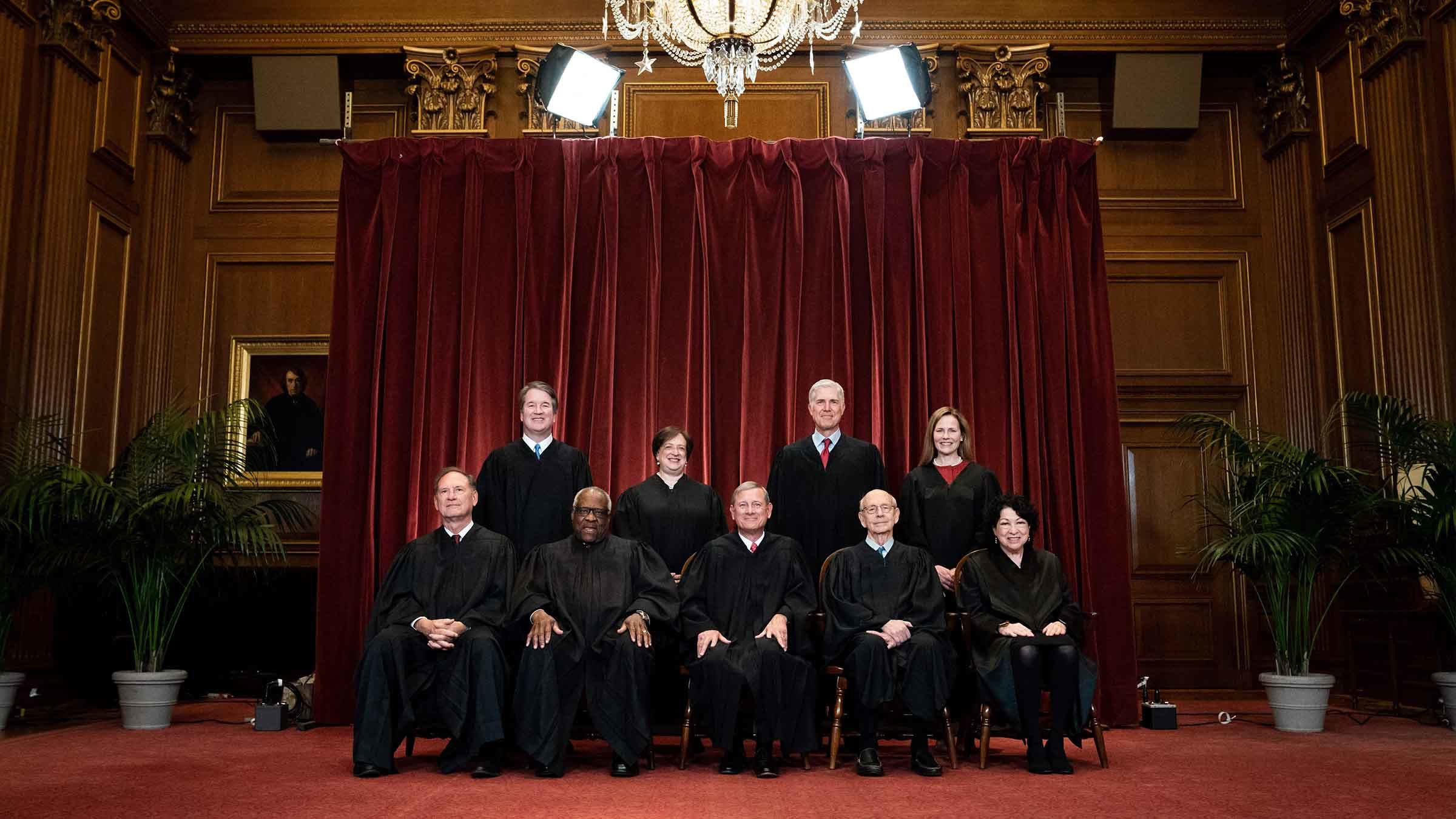When the Supreme Court released its opinion in Johnson v. Arteaga-Martinez last month, the three liberals—Justices Stephen Breyer, Sonia Sotomayor, and Elena Kagan—joined their conservative colleagues to hold that the federal government can detain asylum seekers while they wait to present their cases before immigration judges. The Court’s decision in Arteaga-Martinez subjects people who fear persecution or torture if deported to potentially years of incarceration without a hearing.
Antonio Arteaga-Martinez had lived and worked in the U.S. for six years when Immigration and Customs Enforcement officers detained him and placed him in deportation proceedings in 2018. He had crossed the border a total of four times without authorization: Most recently, when he returned to Mexico to visit his sick mother in 2011, gang members beat him, stole his car, and threatened to kill him if he reported them to police. When he fled across the border, he did so for good.
Things were going fine for Arteaga-Martinez—he was even expecting the birth of his first child—until ICE blew his life up, incarcerating him in the York County jail in Pennsylvania. (Earlier this year, York County ended its contract with the agency after former detainees spoke out about experiencing denials of medical care and receiving insufficient food and unsafe water.) After six months, Arteaga-Martinez filed a habeas petition, arguing that the Constitution and immigration law require that the government provide bond hearings to people detained for longer than six months.
In an 8-1 opinion written by Justice Sonia Sotomayor, however, the Court held that people like Arteaga-Martinez have no right to a bond hearing, regardless of how many years a case might drag on. (Only Breyer dissented, and only in part.) Sotomayor expressly declined to answer the question of whether the prolonged detention that migrants face is unconstitutional, because the lower courts hadn’t yet weighed in on that question. The Court, she wrote, is one “of review, not of first view.” (When the issue at hand is migrants’ rights, the justices suddenly demonstrate judicial restraint.)
This is the fundamental difference between the Court’s conservative majority and its liberal trio. As Dobbs decision overturning Roe v. Wade demonstrates, conservatives are willing to drive the institution’s legitimacy into the ground so long as they accomplish their agenda. But even though the liberals frequently dissent from the Court’s most egregious decisions, they just don’t match the conservatives’ energy when it comes to outlining an affirmative vision of how the law should work. In a decision about whether the government can detain migrants for years on end without tossing the Constitution in the trash, Sotomayor claims her hands are tied by a procedural technicality.

TOP ROW, L-R: four people who are fine with the Court abandoning immigrants
BOTTOM ROW, L-R: five people who are mostly fine with the Court abandoning immigrants
(Photo by Erin Schaff-Pool/Getty Images)
Not long ago, the liberal justices still had some energy for standing up for the rights of migrants. In 2001, the Court in Zadvydas v. Davis imposed a six-month limit on detention for someone whose deportation is not possible in the near future. “A statute permitting indefinite detention of an alien would raise a serious constitutional problem,” Justice Stephen Breyer wrote.
In 2018, however, the Court’s conservatives hollowed out Zadvydas in Jennings v. Rodriguez, finding that federal immigration law does not require the government to provide hearings to migrants with certain criminal convictions. Breyer dissented, joined by Sotomayor and Justice Ruth Bader Ginsburg, arguing that the Fifth and Eighth Amendments together guarantee hearings in this context. “No one can claim, nor since the time of slavery has anyone to my knowledge successfully claimed, that persons held within the United States are totally without constitutional protection,” he wrote.
Although she joined the principal dissent, Sotomayor did sign on to Part III-C of Alito’s majority opinion, which throws cold water on the idea of six-month bond hearings and emphasizes that immigration law “authorizes the Attorney General to arrest and detain an alien” while the government decides that person’s case. Her willingness to join the Court’s dark side, even if for only two paragraphs, previewed her willingness to lock the jail cells in Arteaga-Martinez four years later.

L-R: Two people who believe in the Court’s legitimacy, and one who takes advantage of it (Photo by Chip Somodevilla/Getty Images)
Sotomayor’s opinion in Arteaga-Martinez frames the outcome as inevitable, purporting to “faithfully” apply the Court’s precedent in Jennings. On a Court dominated by conservatives who do not give a single fuck about precedent, this is tantamount to unilateral surrender. The government detaining people indefinitely is precisely the kind of harm the Constitution is supposed to protect against, but the liberals seem to have lost their stomachs for the fight.
By contrast, even when conservatives win the fight, they are still pushing for more. In a concurrence written by Justice Clarence Thomas and joined by Alito, Thomas opined that the protections of the Due Process Clause don’t apply at all to “aliens” subject to removal. These two are not content to sanction prolonged detention; they are laying the groundwork for even more draconian holdings in the future.
The conservative legal movement is purely about outcomes, and right now, the conservative justices are hell-bent on implementing their agenda: destroying reproductive rights, the administrative state, and the separation between church and state. The liberals, meanwhile, remain so committed to preserving whatever remains of the Court’s legitimacy that they will abandon migrants with barely a whimper.

